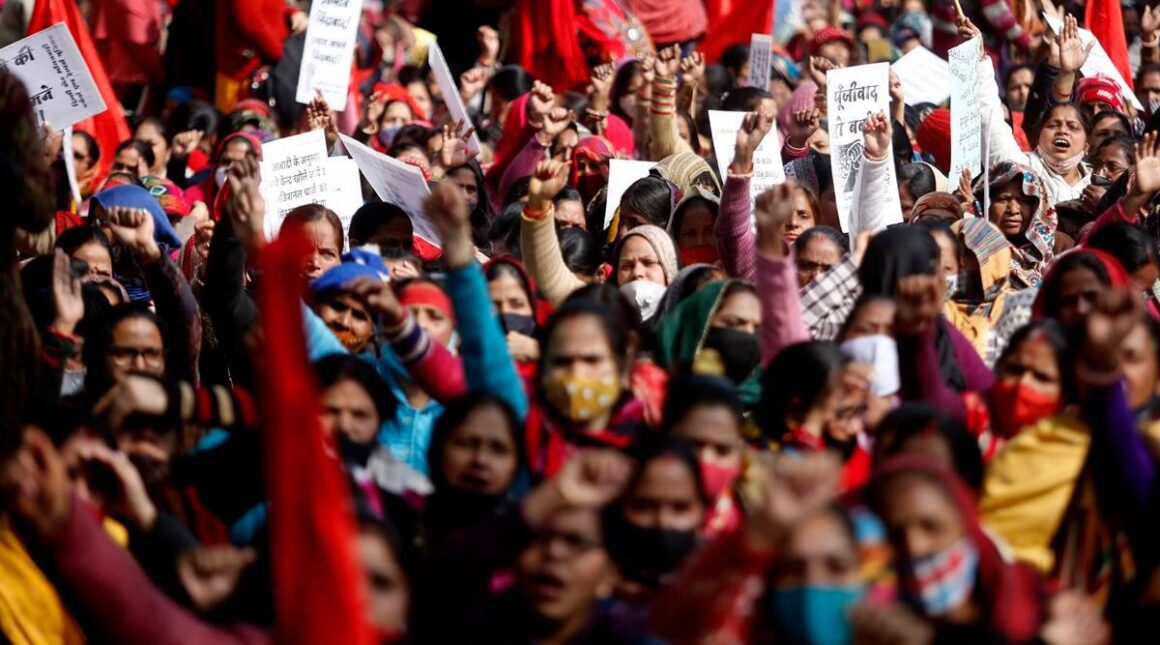By Harper Cleves
A 2021 Institute of Economic Affairs (IEA) survey found that 67% of UK residents surveyed between the ages of 16 and 34 would like to live in a socialist economic system. Younger generations that have grown up in the context of increasing precarity and uncertainty under capitalism, are looking for a solution that centres human need, not capitalist greed.
A socialist vision for a just future is based on a scientific understanding of how the system developed and functions. While there may be a spectrum of wealth owned by different people on the planet today, capitalism is still composed primarily of two dominant classes: the capitalist class, which is made up of an small number of bosses that own and control most of the world’s wealth and industry; and the working class, the vast majority of humanity, which can only make a living by selling their labour power (their ability to work) to a capitalist.
To put it into perspective, in Ireland North and South there are approximately 3 million people who are currently working between the ages of 16 and 65. This is nearly 70% of the working-age population, not including the unemployed, students or informal sector workers. On the other hand the millionaires who make up most of the capitalist class amount to less than 1%.
The working class has kept the world afloat over multiple lockdowns by nursing sick patients, selling essential goods at shops, teaching children, delivering mail, driving buses – the list goes on. So the pandemic made it even clearer that the working class is essential to the functioning of human society, whereas an increasingly wealthy elite of ‘owners’ is completely superfluous to the running of society, to put it mildly — in fact they are a useless drain on society. This tiny class of people hoards wealth and diverts investment away from needs, towards profits, and does so by systematically underpaying the people who do make the world function.
This is a dynamic that inevitably results in clashes between the classes. The history of the working class is a history of countless strikes, protests, occupations and social revolts of whole working-class communities. We must prepare for many more of these in the coming years. Already working-class struggles globally are intensifying in the face of so many crises. In the US in recent months, as part of an uptick in strikes across the country, we’ve seen the significant development of workers beginning to unionise for the first time in giant anti-union companies such as in Starbucks and Amazon.
More significant still, last October in South Korea half a million workers across different sectors staged a general strike, calling for the abolition of precarious work, and the nationalisation of key industries including healthcare and education. Closer to home, in a single week of March in the North there were four different industrial actions waged by council workers, education welfare officers, university lectures and for the first time ever strikes by Deliveroo drivers and other app workers, as well as protest action by sacked P&O workers. These examples are a vital sign of the times.
The daily hardships experienced by workers because of the exploitative nature of the system will increasingly push people to action out of necessity. And workers, who make the world run, have the power (by refusing to work) to also bring it to a standstill, and in doing so demand better conditions, better pay, better services — to begin with. But for such reforms to be lasting socialist change is needed, and the working class can make this change too.
The Socialist Party is an organisation that seeks to organise workers and young people in a struggle for revolutionary socialist change. For Socialist Party activists, and for more and more workers globally, the vision for a socialist future is not an idealistic dream or an interesting talking point, it is a vital necessity for the collective well-being of humanity, and one which is entirely within our grasp if we organise now.












